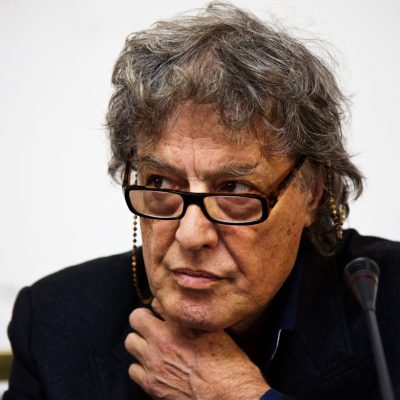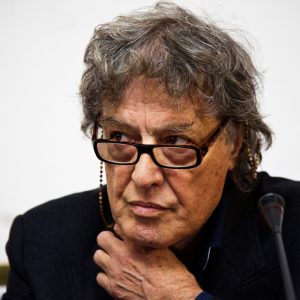27 Sep 2021 | China
“First, we stood up, then we got rich, and now we got strong.” Chinese officials are repeating this slogan over and over, China analyst Mareike Ohlberg recently told the audience at an Index on Censorship event. “Part of being a strong country means being able to influence or determine what people talk about, not just in China but globally.”
Confucius Institutes were established in 2004 with the stated mission of teaching Chinese language and culture abroad and are widely acknowledged as one of the ways China exerts its influence around the world. In 2010, the Confucius Institute headquarters (known as Hanban) received the ‘Chinese Influence the World Award’. “People often ask me about the Confucius Institute’s role in soft power,” said its founder, Xu Lin, at the award ceremony. “We are indeed trying to expand our influence.”
Confucius was a sixth-century philosopher, educator, and quasi-religious figure, who has since come to symbolise peace and harmony. By promoting this image and avoiding any reference to Marxist ideology, a Chinese state institution has made its way onto more 550 university and college campuses, and into 1,172 primary and secondary school classrooms around the world. According to the New York Times, “The carefully selected label [of Confucius Institutes] speaks volumes about the country’s soft-power ambitions.”
In the West, the largest number of Confucius Institutes are found in English-speaking countries. Why? “The Chinese government is minimalist,” Ohlberg replied. “If you have the government in your pocket, why do you need a Confucius Institute?” The UK has approximately 30 Confucius Institutes, five in Scotland. France has 21, Germany has 19, and Italy has 16. There are 103 in the EU.
By operating primarily on campuses, Confucius Institutes are unlike other countries’ cultural organisations, like the British Council, Alliance Française, or Goethe Institutes. Tao Zhang of Nottingham Trent University believes this enables the Chinese authorities “to gain a foot-hold for the exercise of control over the study of China and the Chinese language.”
Confucius Institutes are also unlike European institutes in that they are directly managed by the Chinese government. According to the Netherlands Institute of International Relations, “[t]his offers Confucius Institutes the possibility to unilaterally promote Chinese policy and ideas in a one-sided way, to commit censorship, or to stimulate self-censorship about China among students, pupils and the wider public”.
This report looks the rise of the Institutes and whether those fighting for freedom of expression should be worried.
24 Sep 2021 | Bosnia, China, News, Turkey, Volume 50.03 Autumn 2021 Extras
[vc_row][vc_column][vc_single_image image=”117556″ img_size=”full” add_caption=”yes”][vc_column_text]Almost three decades ago, some three million books and countless artefacts went up in flames when Sarajevo’s National and University Library – inside the Vijecnica (city hall) – was burned to the ground. The destruction of the Vijecnica at the beginning of the war was a symbol for one of the aggressor’s main objectives – silencing the soul of the city and crushing the cultural identity of an entire society.”
So said Dunja Mijatović, the current Council of Europe commissioner for human rights, who was born in Sarajevo when it was part of Yugoslavia.
Just weeks before the anniversary of the burning of the library on 25 August 1992, Mijatović spoke to Index about its symbolism and what its destruction was meant to achieve.
She quoted Heinrich Heine’s play, Almansor: “Where they burn books they will also, in the end, burn people.”
Libraries and archives have been targets for centuries, and the reason is always the same: it’s about taking away knowledge and stifling free thinking.
Libraries are, and have always been, symbols of freedom – the freedom to think and learn and find documents and books to debate and discuss.
Throughout history, when authoritarians take power and seek to control thought and behaviour, they either lock up libraries or destroy the manuscripts and books inside them.
The Serbian forces who burned the Sarajevo library were seeking to obliterate evidence of Bosnia and Herzegovina’s existence as a successful multicultural and multi-ethnic state. The documents they burned told a different history from the one that the army leaders wanted to portray.
Omar Mohammed, who reported as Mosul Eye on the Isis occupation of his city in Iraq, risked his life to blog anonymously about the occupiers’ wish to destroy books as well as to execute people as they sought to repress the population.
Mohammed told Index that it was not just the university library that was destroyed in Mosul, but it was the one that was reported on the most.
Many other libraries, even private collections, were wiped out. “The only possible reason is because knowledge is power,” he said. “Once you prevent people from accessing knowledge then you will have full control over them.”
Like many other scholars who have delved into the history of libraries, Mohammed understands that it is not about the buildings themselves.
“They don’t want people to have this access because they know if people write the history, it will be completely different from the one they wanted it to be,” he said.
Targeting libraries sends out a powerful message to scholars, historians and scientists, he added.
“When they see that such people are able to totally target the libraries, that they are literally able to destroy everything, it’s a manifestation of brutality.”
Today, Richard Ovenden, the most senior librarian at the Bodleian libraries at the University of Oxford, is worried about libraries in Turkey being closed under pressure from the government of president Recep Tayyip Erdoğan.
According to some sources, at least 188 libraries were closed there between 2002 and 2020.
Ovenden’s book, Burning the Books, looks at the history of the intentional destruction of knowledge. He was recently contacted by a Turkish student, who said: “I’ve just read your book and I want you to know how bad it is in Turkey, because libraries are being destroyed. And all the things that you write about are true in Turkey today.”
Ovenden said: “There is an absolutely authoritarian control over knowledge. Attacks on knowledge are being exercised by the authoritarian leader of Turkey right now. It is the ability for the population to generate their own ideas and to come up with their own thoughts that some governments, some authoritarian powers, some dictators and rulers do not like.”
When dictatorships seek to establish that certain minorities don’t exist, or haven’t lived somewhere, getting rid of the documentary evidence is very convenient.
Archives that establish the existence of Uighurs in China and Muslims in parts of India also look like targets.
Ovenden feels that what is fantastically important about libraries is that they “preserve the past thoughts and ideas of human beings so they’re parts of that evidence base”.
He added: “They’re also disseminating institutions [where] you can borrow the books, you can come and take those ideas away and write other books about them, or pamphlets, or newspaper articles, or whatever it is.”
Governments around the world are failing to protect libraries as a resource, sometimes by withdrawing or drastically reducing funding.
In the UK, almost 800 libraries closed between 2010 and 2019, and a major campaign kicked off in Australia this year to save the national archives.
Michelle Arrow, professor of history at Macquarie University in Sydney, argued in April that if funding cuts were not reversed, irreplaceable audio-visual collections would fall apart. After a public campaign, the national government has delivered some extra funding, but this has not solved all the archives’ problems.
She told Index that with a reduction in staff of almost 25% since 2013, more staff would be needed to deal with the large backlog of requests to view archived material.
She said the archives contained “unique records, and they touch almost every Australian: it is a democratic archive, a collection of ordinary people’s records, rather than famous or renowned Australians”.
While some countries are seeing numerous library closures due to financial or other threats, there are new defenders coming to light. In the coastal city of Santa Cruz in California, there’s a massive investment in upgrades to current libraries, and new ones are opening over the next two years.
Santa Cruz mayor Donna Meyers told Index: “In California, we just tend to believe in public institutions. We believe that public education, public libraries, all of that, lead to a better community, lead to a more informed society.”
Santa Cruz residents passed a special tax – by 78% of the vote – to pay for investment in the libraries which, Meyers says, is a sign of how committed the community is to libraries being around for future generations.
Back in Sarajevo, Mijatović can see the new library that rose from the ashes of the Vijecnica from her terrace.
She said: “One hopes that the soul and the people of Sarajevo will recover and that new generations will hopefully enjoy this magnificent symbol of Sarajevo and, more importantly, live in peace.”
Library destruction in recent history
1914: German troops destroy the library of the Catholic University of Louvain
1939: The Great Talmudic Library in Lublin is destroyed by the Nazis
1966-76: Chairman Mao destroys libraries across China as part of the Cultural Revolution
1976-79: The Khmer Rouge deliberately destroy libraries across Cambodia, including the Phnom Penh national library
2013: Islamic troops set fire to the library in Timbuktu, Mali
[/vc_column_text][/vc_column][/vc_row]
6 Aug 2021 | Afghanistan, Belarus, Burma, China, Hong Kong, India, Opinion, Ruth's blog
[vc_row][vc_column][vc_single_image image=”117177″ img_size=”full” add_caption=”yes”][vc_column_text]There are moments as you’re watching the news when it feels as if the world is becoming an increasingly horrible place, that totalitarianism is winning, and that violence is the acceptable norm. It’s all too easy to feel impotent as the horror becomes normalised and we move on from one devastating news cycle to the next.
This week alone, in the midst of the joy and heartbreak of the Olympics, we have seen the attempted forced removal of the Belarusian sprinter Krystina Timanovskaya from Tokyo by Lukashenko’s regime. Behind the headlines, the impact on her family has been obvious – her husband has fled to Ukraine and will seek asylum with Krystina in Poland and there have been reports that even her grandparents have been visited by KGB agents in Belarus.
This served as a stark reminder, if we needed one, that Lukashenko is an authoritarian dictator who will stop at nothing to retain power. And this is happening today – in Europe. Our own former member of staff Andrei Aliaksandrau and his partner Irina have been detained for 206 days; Andrei faces up to 15 years in prison for treason; his alleged “crime” – to pay the fines of the protestors.
In Afghanistan, reports of Taliban incursions are now a regular feature of every news bulletin, with former translators who supported NATO troops being murdered as soon as they are found and media freedom in Taliban-controlled areas now non-existent. Six journalists have been killed this year, targeted by extremists, and reporters are being forced into hiding to survive. As the Voice of America reported last month: “The day the Taliban entered Balkh district, 20 km west of Mazar e Sharif, the capital of Balkh province last month, local radio station Nawbahar shuttered its doors and most of its journalists went into hiding. Within days the station started broadcasting again, but the programming was different. Rather than the regular line-up, Nawbahar was playing Islamist anthems and shows produced by the Taliban.”
Last Sunday, Myanmar’s military leader, Gen Min Aung Hlaing, declared himself Prime Minister and denounced Aung San Suu Kyi as she faces charges of sedition. Since the military coup in February over 930 have been killed by the regime including 75 children and there seems to be no end in sight as the military continue to clamp down on any democratic activity and journalists and activists are forced to flee.
At the beginning of this week Steve Vines, a veteran journalist who had plied his trade in Hong Kong since 1987, fled after warnings that pro-Beijing forces were coming for him. The following day celebrated artist Kacey Wong left Hong Kong for Taiwan after his name appeared in a state-owned newspaper – which Wong viewed as a ‘wanted list’ by the CCP. Over a year since the introduction of the National Security Law in Hong Kong the ramifications are still being felt as dissent is crushed and people arrested for previously democratic acts, including Anthony Wong, a musician who was arrested this week for singing at an election rally in 2018. Dissent must be punished even if it was three years ago.
And then there is Kashmir… On 5 August 2019, Narendra Modi’s government stripped Jammu and Kashmir of its special status for limited autonomy. Since that time residents inside Kashmir have lived under various levels of restrictions. Over 1,000 people are still believed to be in prison, detained since the initial lockdown began, including children. Reportedly 19 civilians have died so far this year caught in clashes between the Indian Army and militants. And on the ground journalists are struggling to report as access to communications fluctuates.
Violence and silence are the recurring themes.
Belarus, Afghanistan, Myanmar, Hong Kong, Kashmir. These are just five places I have chosen to highlight this week. Appallingly, I could have chosen any of more than a dozen.
It would be easy to try and avoid these acts of violence. To turn off the news, to move onto the next article in the paper and push these awful events to the back of our mind. But we have a responsibility to know. To speak up. To stand with the oppressed.
Behind every story, every statistic, there is a person, a family, a friend, who is scared, who is grieving and in so many cases are inspiring us daily as they stand firm against the regimes that seek to silence them. Index stands with them and as ever we shine a spotlight on their stories – so that we can all bear witness.[/vc_column_text][/vc_column][/vc_row][vc_row][vc_column][three_column_post title=”You may also want to read” category_id=”41669″][/vc_column][/vc_row]





